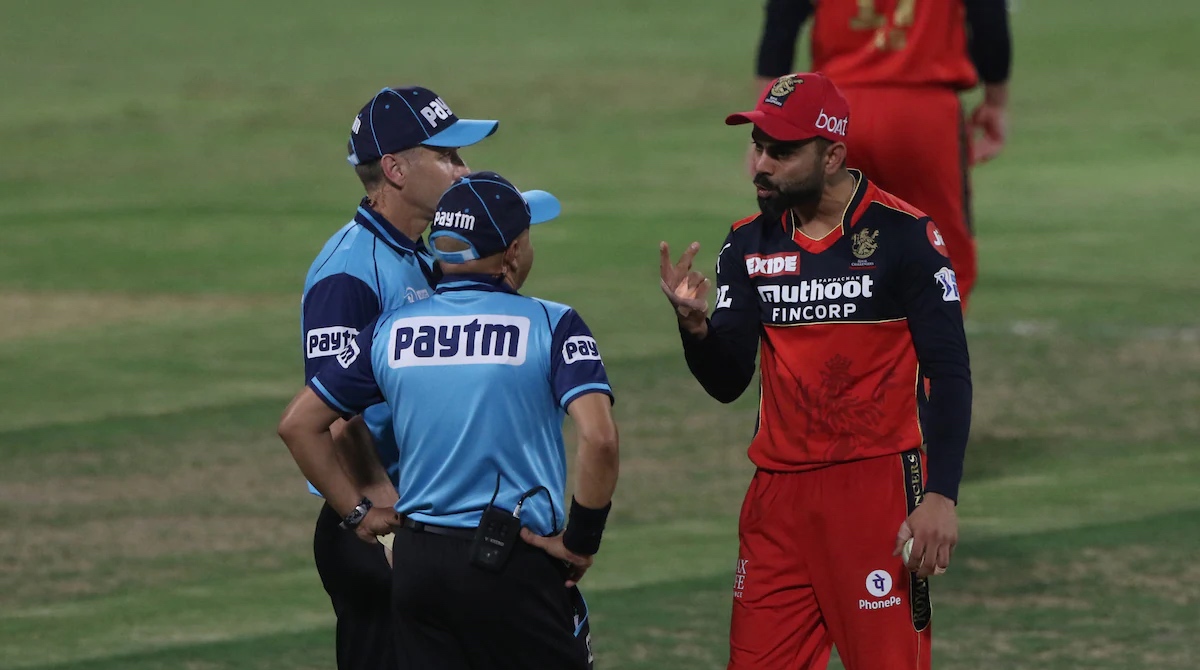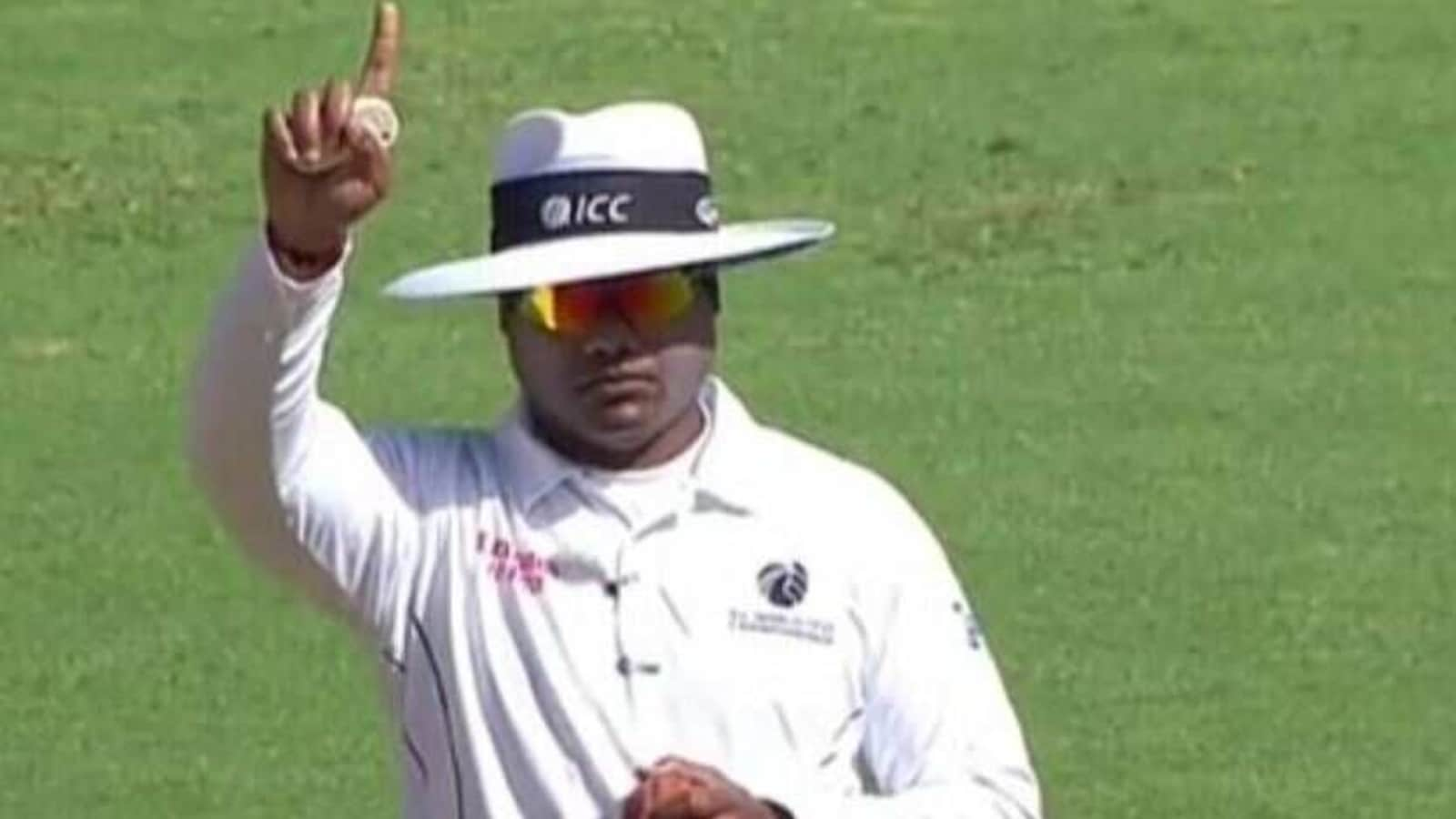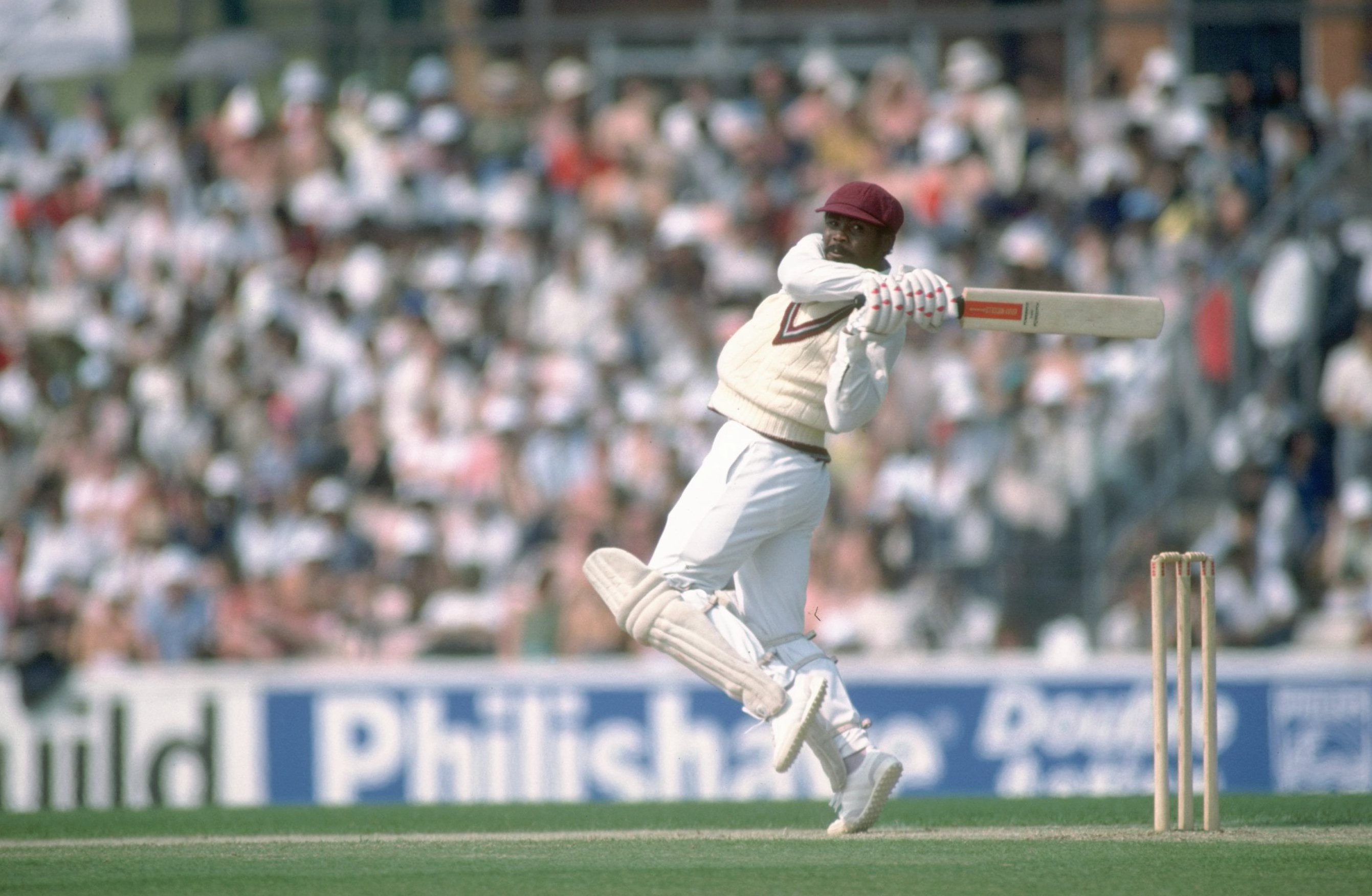Strikers fume after on-field umpire helps Hobart Hurricanes avoid a loss. This controversial call in a recent Big Bash League match has sparked outrage among players and fans alike. A crucial moment in the game saw the umpire make a decision that many believe favored the Hobart Hurricanes, leaving the opposing team fuming and questioning the fairness of the call.
Let’s dive into the details, examining the incident, the reactions, and the wider implications for the sport.
We’ll explore the specific incident, analyzing the relevant rules and the sequence of events leading to the contentious decision. We’ll also look at the players’ reactions, both verbal and non-verbal, and compare their perspectives with that of the umpire. The impact on the game’s outcome, potential consequences, and the public and media responses will all be examined. Finally, we’ll consider the larger themes of fair play and sportsmanship in the context of this controversial call.
The Umpire’s Decision

The recent Big Bash League match between the Melbourne Strikers and the Hobart Hurricanes saw a controversial umpire’s call that sparked significant outrage among the Strikers players. The incident involved a close lbw appeal and the subsequent decision heavily influenced the outcome of the game, leading to accusations of bias and calls for improved clarity in officiating. This analysis examines the context of the decision, the relevant rules, and the perspectives of those involved.The incident centered around a delivery from the Strikers’ bowler that appeared to strike the Hurricanes batsman on the pads.
The on-field umpire, after a brief moment of deliberation, deemed the ball not to be out. This decision, however, was immediately disputed by the Strikers’ captain and players, who believed the ball to have been clearly hitting the stumps. The rules of cricket concerning lbw appeals are complex, requiring the umpire to consider whether the ball would have struck the wickets, given the trajectory of the ball and the batsman’s stance.
The umpire must also determine if the ball pitched in line with the wickets, and whether the batsman offered a legitimate shot. A wrong decision can drastically alter the momentum of a match and influence its final result, as was the case here.
Timeline of Events
The events leading to and following the controversial decision unfolded rapidly. Firstly, the bowler delivered a well-directed ball that appeared to hit the batsman’s pads. Secondly, an immediate appeal for LBW was made by the Strikers. Thirdly, the umpire, after a short pause, signaled “not out.” Fourthly, the Strikers’ players reacted visibly with anger and frustration, expressing their disbelief to the umpire.
Fifthly, the game continued with the Hurricanes batsman remaining at the crease. Sixthly, post-match interviews saw the Strikers captain voicing his concerns and disappointment about the decision.
Comparison of Perspectives
The perspectives of the Strikers and the umpire differed significantly regarding the lbw appeal.
| Perspective | On the Pitching of the Ball | On the Line of the Ball | On the Leg Before Wicket Decision |
|---|---|---|---|
| Melbourne Strikers | Believed the ball pitched in line with the stumps. | Believed the ball would have hit the stumps. | Strongly believed the batsman was out LBW. |
| Umpire | Determined the ball was outside the line of the stumps or not straight enough. | Determined the ball would have missed the stumps. | Ruled the batsman not out. |
Player Reactions and Statements
The controversial umpire’s decision to rule a crucial catch out as not out sparked immediate and intense reactions from the Strikers players. Their frustration was palpable, manifesting in both verbal outbursts and pronounced body language. The varied responses highlight the emotional weight of the moment and the differing coping mechanisms of the players involved.The immediate aftermath saw a flurry of expressions of disbelief and anger.
Players were seen gesticulating wildly towards the umpire, their faces etched with fury. This raw emotion was further amplified by the implications of the decision on the game’s outcome.
Verbal Reactions
Several players voiced their discontent. Captain Alex Ross, according to post-match interviews, stated,
“I’m absolutely speechless. That was a clear catch, and to have it overturned like that… it’s unacceptable.”
Another striker, Matthew Short, was equally blunt, commenting,
“I’ve never seen anything like it. The umpire cost us the game. Plain and simple.”
Okay, so the Strikers are seriously ticked off about that umpire’s call – a total game-changer! It’s almost as bizarre as the news that, check out this article on ‘The Batman’ Sequel Heads To 2027, Tom Cruise & Alejandro G , which is completely unrelated but equally mind-boggling. Anyway, back to the cricket drama, the Strikers are probably still arguing about that questionable decision.
These statements, made shortly after the incident, reveal the depth of their frustration and their conviction that the umpire made a significant error. A later statement from a less senior player, Tim David, was more measured but still expressed disappointment:
“It’s tough to swallow, but we have to move on.”
This illustrates a range of responses, from outright anger to controlled disappointment.
Non-Verbal Reactions
Beyond the verbal exchanges, the strikers’ body language spoke volumes. Ross, for instance, was observed repeatedly shaking his head in disbelief and pointing aggressively towards the spot where the catch was made. Short’s reaction was more physically demonstrative; he threw his bat to the ground in frustration before walking off the field. Other players displayed a mix of disbelief, anger, and resignation, with some slumping their shoulders and others engaging in hushed conversations with teammates, their body language conveying a sense of collective disappointment and anger.
Okay, so the Strikers are totally cheesed off about that umpire call in the Hurricanes game, right? It’s a whole different vibe over in the Tigers organization though; they’re pretty stoked about adding some infield depth with the news that you can check out here: Tigers add Torres to infield mix on 1-year deal. Meanwhile, back to the Strikers’ anger – bet they’re wishing for a similar bit of good news to lighten the mood!
The contrast between the more overt reactions of Ross and Short and the more subdued responses of others reveals different personality types and coping mechanisms under pressure.
Comparison of Reactions
The varying responses highlight the different personalities and coping mechanisms within the team. While Ross and Short openly expressed their anger, other players chose more subdued reactions, suggesting different levels of emotional control or perhaps a strategic approach to avoiding further conflict. The captain’s outburst likely reflected his responsibility to lead the team and represent their grievances, whereas other players may have opted for a more controlled response to avoid potential penalties.
The diverse responses show the emotional intensity of the moment and the variety of ways individuals deal with perceived injustice.
Game Implications and Consequences

The umpire’s controversial decision in the Hobart Hurricanes match had significant repercussions, extending beyond the immediate game result. Its impact reverberated through the league, raising questions about officiating standards and potentially influencing future game strategies. The fallout highlighted the high stakes involved in professional cricket and the intense scrutiny placed upon umpires.The umpire’s call directly impacted the game’s outcome.
Had the decision gone the other way, the Strikers might have secured victory. This highlights the significant power umpires wield and the potential for a single decision to drastically alter a match’s trajectory. Such instances underscore the importance of accurate and consistent officiating, as the credibility of the sport relies on fair play. The margin of victory, or defeat, can be extremely narrow in professional cricket, making even seemingly minor decisions potentially decisive.
For example, a similar incorrect call in a crucial playoff game could have cost a team a spot in the final, leading to significant financial losses and reputational damage.
Umpire’s Potential Consequences
The umpire’s performance is now under intense scrutiny. Depending on the league’s review process, potential consequences could range from a formal reprimand and additional training to suspension, impacting their future employment within the league. A thorough review is needed to determine whether the decision was a genuine error in judgment or resulted from negligence or bias. Previous incidents of umpire errors, leading to similar controversies, have resulted in temporary suspensions, mandatory retraining programs focusing on rule interpretation and on-field management, and in some cases, the end of an umpire’s career.
The level of consequence often depends on the severity of the error and its impact on the game.
Team and League Consequences
The Hurricanes benefited from the umpire’s decision, gaining an advantage they might not have otherwise had. This could affect their morale and confidence, but also potentially lead to increased scrutiny of their performances in subsequent matches. Conversely, the Strikers suffered a loss fueled by a contentious call. This could impact their team dynamics and their standing in the league, potentially affecting their chances for future playoff appearances and revenue opportunities associated with a high ranking.
The league itself faces reputational damage, needing to address concerns about the quality of officiating to maintain public trust. A lack of decisive action could lead to a loss of sponsorships and a decline in viewership.
Okay, so the Strikers are totally cheesed off about that umpire’s call – felt like a total rip-off! It’s a bummer when things like that happen, but hey, life throws curveballs, kind of like learning about the death of Olivia Hussey, the iconic Juliet in Olivia Hussey: Romeo and Juliet actress dies aged 73. Sad news, but it reminds us to appreciate the good moments.
Anyway, back to the Strikers – I bet they’re already strategizing for their next game after that controversial decision.
Impact on Future Games and Rule Interpretations
This incident may lead to a review of the specific rule involved, potentially clarifying its interpretation for future games. It might also prompt further training for umpires, emphasizing consistency in applying the rule and the importance of minimizing controversial calls. The league could implement new technologies, like video replay systems, to reduce the frequency of such errors. The increased focus on this incident might lead to stricter regulations and clearer guidelines for umpires, with a greater emphasis on accountability and transparency.
The introduction of more rigorous training and evaluation processes for umpires could also become a consequence.
Possible Repercussions
The following bullet points Artikel the potential repercussions:
- Umpire reprimand or suspension.
- League review of officiating procedures.
- Changes to rule interpretations.
- Increased use of technology in officiating.
- Impact on team morale and standings.
- Potential loss of sponsorships for the league.
- Changes to umpire training and evaluation.
- Increased public scrutiny of officiating.
Public and Media Response: Strikers Fume After On-field Umpire Helps Hobart Hurricanes Avoid A
The controversial umpire’s decision in the Hobart Hurricanes match ignited a firestorm of debate across social media and traditional news outlets. Public reaction was swift and largely negative, with many expressing outrage and disbelief at the call’s impact on the game’s outcome. The incident quickly became a trending topic, sparking widespread discussion and analysis.The intensity of the public response was fueled by the perceived unfairness of the decision and its significant consequences for the Strikers.
Many felt the umpire’s intervention had unjustly deprived the Strikers of a deserved victory, leading to a significant outpouring of frustration and criticism. This widespread discontent extended beyond the team’s immediate fanbase, capturing the attention of even casual cricket followers.
Social Media Reactions
Social media platforms were flooded with comments, memes, and discussions regarding the incident. Twitter, in particular, became a battleground of opinions, with hashtags like #UmpireControversy and #StrikersRobbed trending for hours. Many users shared their outrage, calling for stricter accountability for umpires and questioning the decision-making process. Others offered more nuanced perspectives, acknowledging the complexity of the situation while still expressing concerns about the call’s impact.
The sheer volume and intensity of negative feedback highlighted the public’s dissatisfaction.
Commentary and Analysis from News Outlets
News outlets provided varied coverage, reflecting the range of opinions on the incident. Some commentators focused on the technical aspects of the decision, examining the rules and regulations involved and offering detailed explanations. Others highlighted the emotional impact on the Strikers, emphasizing the players’ frustration and disappointment. Many commentators called for improved umpire training and a review of the decision-making processes to prevent similar incidents in the future.
For example, one prominent sports journalist argued that the umpire’s decision lacked transparency and consistency, undermining the integrity of the game. Another commentator emphasized the psychological toll the controversial decision would have on the Strikers’ confidence and morale.
Comparison of Media Portrayals
While most media outlets condemned the umpire’s decision, the degree of criticism varied. Some publications presented a more balanced perspective, acknowledging the umpire’s potential difficulties in making a quick judgment call under pressure. Others took a more strongly critical stance, emphasizing the negative impact on the game’s fairness and suggesting that the umpire’s decision was a gross error of judgment.
This divergence in tone and emphasis demonstrates the complexity of the issue and the multifaceted nature of public opinion. The differences in media portrayals highlight the challenges in providing objective reporting on such emotionally charged events.
Fair Play and Sportsmanship

Cricket, like any sport, thrives on the principles of fair play and sportsmanship. These principles encompass respect for the rules, opponents, officials, and the spirit of the game itself. They promote a positive and ethical environment where competition is fierce but conducted with integrity. The actions of the umpire in the Hobart Hurricanes incident must be evaluated against this backdrop of expected ethical conduct.The umpire’s decision to overturn a legitimate dismissal, seemingly to avoid a potentially controversial finish, directly conflicts with the principles of fair play.
Fair play demands that the rules are applied consistently and impartially, regardless of the game’s outcome or the potential repercussions. By intervening in a way that arguably altered the course of the match, the umpire undermined the integrity of the game and the trust placed in their impartial judgment. This action also disrespects the efforts of the players and the competitive nature of the sport.
The essence of sportsmanship lies in accepting both victory and defeat with grace, playing by the rules, and exhibiting respect towards opponents and officials. The umpire’s actions, therefore, fall short of the expected standards of sportsmanship.
Umpire’s Actions and Principles of Fair Play, Strikers fume after on-field umpire helps Hobart Hurricanes avoid a
The umpire’s intervention disregarded the established rules of the game, creating an uneven playing field. This action undermines the principle of impartiality expected from umpires, whose role is to enforce the rules fairly and consistently, not to influence the outcome of the match. A fair game relies on the belief that the outcome is determined solely by the players’ skills and adherence to the rules, not by external influences.
The umpire’s actions contradict this fundamental principle.
Similar Incidents and Resolutions
Numerous incidents in various professional sports demonstrate the consequences of officiating errors or biased decisions. In soccer, for example, incorrect refereeing calls can lead to protests, overturned results, and disciplinary actions against the officials. Similarly, in basketball, controversial referee calls often spark debate and analysis, highlighting the impact of officiating on game outcomes and the importance of impartial judgment.
These incidents often result in reviews of the officiating process and efforts to improve consistency and fairness. While the specific resolutions vary depending on the sport’s governing body, the common thread is a commitment to addressing such situations to uphold the integrity of the game.
Ideal Umpire-Player Interaction
A visual representation of an ideal umpire-player interaction in a similar situation would depict a calm and respectful exchange. The umpire, maintaining a neutral posture and expression, would clearly explain the rule being applied, referencing the relevant rule book or code of conduct. The player, although perhaps disappointed, would listen attentively and respectfully accept the umpire’s decision, even if disagreeing.
The interaction would be devoid of any aggressive or confrontational behavior, showcasing mutual respect and a shared commitment to upholding the integrity of the game. The overall impression would be one of professionalism and adherence to the principles of fair play and sportsmanship, with both parties accepting the umpire’s decision, regardless of the outcome.
Final Thoughts

The umpire’s decision in this Big Bash League match highlights the inherent subjectivity in officiating and the potential for significant impact on game outcomes. The intense reactions from the Strikers, the public outcry, and the media scrutiny underscore the importance of clear, consistent, and fair officiating in professional sports. While the Hurricanes may have benefitted from the call, the incident raises important questions about the need for improved umpire training, clearer rule interpretations, and mechanisms for addressing controversial decisions to ensure fairness and maintain the integrity of the game.
General Inquiries
What specific rule was in question during the incident?
The specific rule needs to be identified from the source material; it may relate to a lbw (leg before wicket) decision or a boundary call, for example.
What was the final score of the match?
The final score needs to be identified from the source material.
Were there any disciplinary actions taken against the umpire?
This information would need to be sourced from post-match reports or league statements.
What is the process for appealing an umpire’s decision in the Big Bash League?
The appeal process will be determined by the Big Bash League’s official rules and regulations.